One Fish Two Fish Printable Alphabet Matching Cards
Have fun with these One Fish Two Fish printable alphabet matching cards! Preschoolers will work on letter identification and matching.
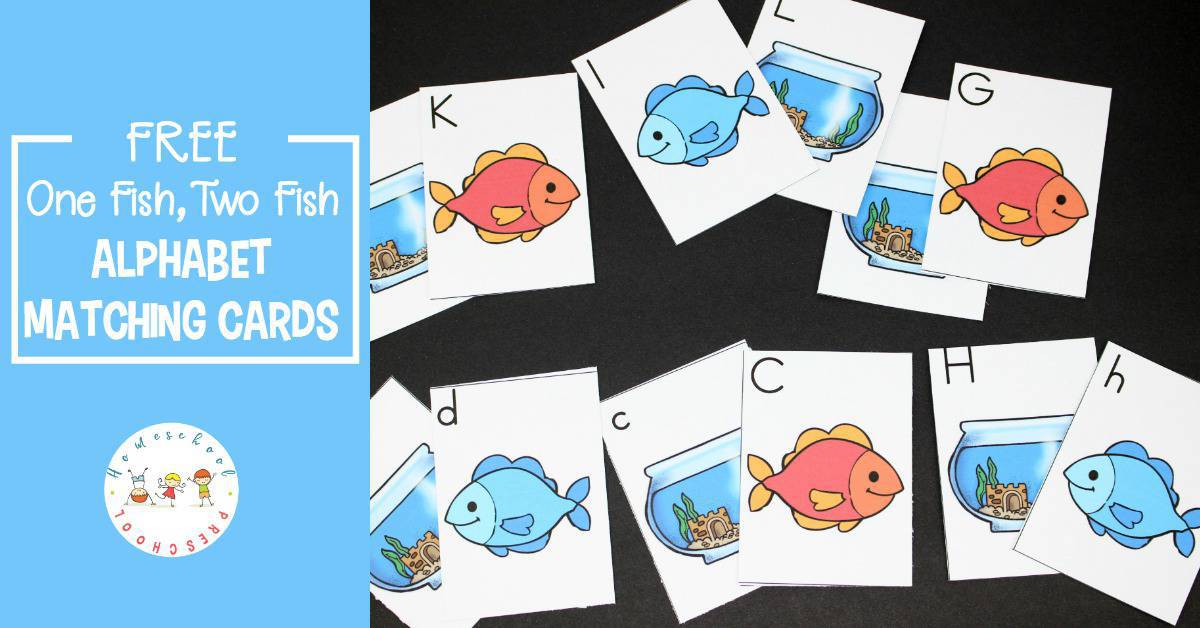
I love sharing new ways to learn with our favorite Dr. Seuss books. One Fish Two Fish Red Fish Blue Fish is a family favorite. It’s a great book for young students and beginning readers.
Little ones can work on colors and numbers as they read the book (or listen to you read it to them). But, the learning doesn’t have to stop there!
One Fish Two Fish Printable Alphabet Matching
Don’t stop with colors and numbers. Extend the learning with these fun alphabet matching cards. Each card features one fish, two fish, a red fish, or a blue fish. Your student’s job is to take each fish to his fishbowl by matching uppercase and lowercase letters.
To get started with this activity, print out the alphabet matching cards. I recommend printing on cardstock and laminating the cards for durability.
Now, cut each of the cards apart so that the uppercase and lowercase cards are separated.
Variation 1: Matching
For younger kids, you can leave the cards face up. Have your child search to find the matching uppercase and lowercase cards. When they’re all matched, your child can mix them up and start all over again. Or, put them in a plastic baggie to save for another day.
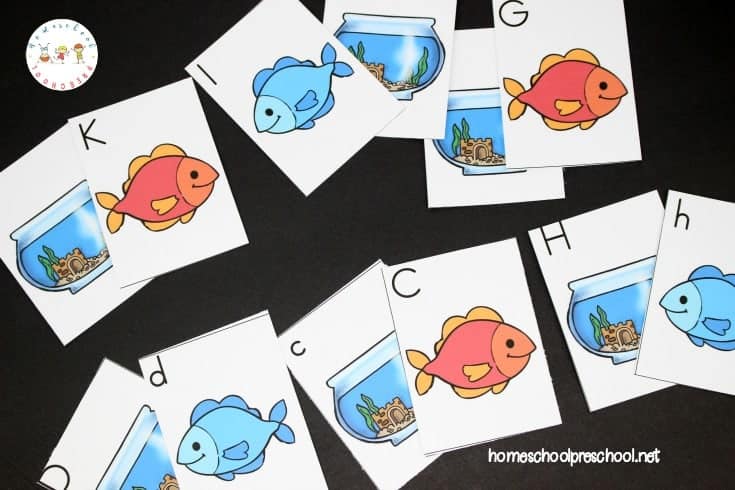
Variation 2: Memory Game
Older kids who are more familiar with their letters may enjoy this variation. Lay the cards facedown in rows on the table before them. Have your child turn over two cards at a time. If the cards match (same uppercase and lowercase letters), they keep the pair. Continue until they’ve found all of the letter pairs.
This is a great activity for multiple children to play together. They can take turns flipping over the cards. A child’s turn continues until their cards don’t match. Then, it’s the other child’s turn.
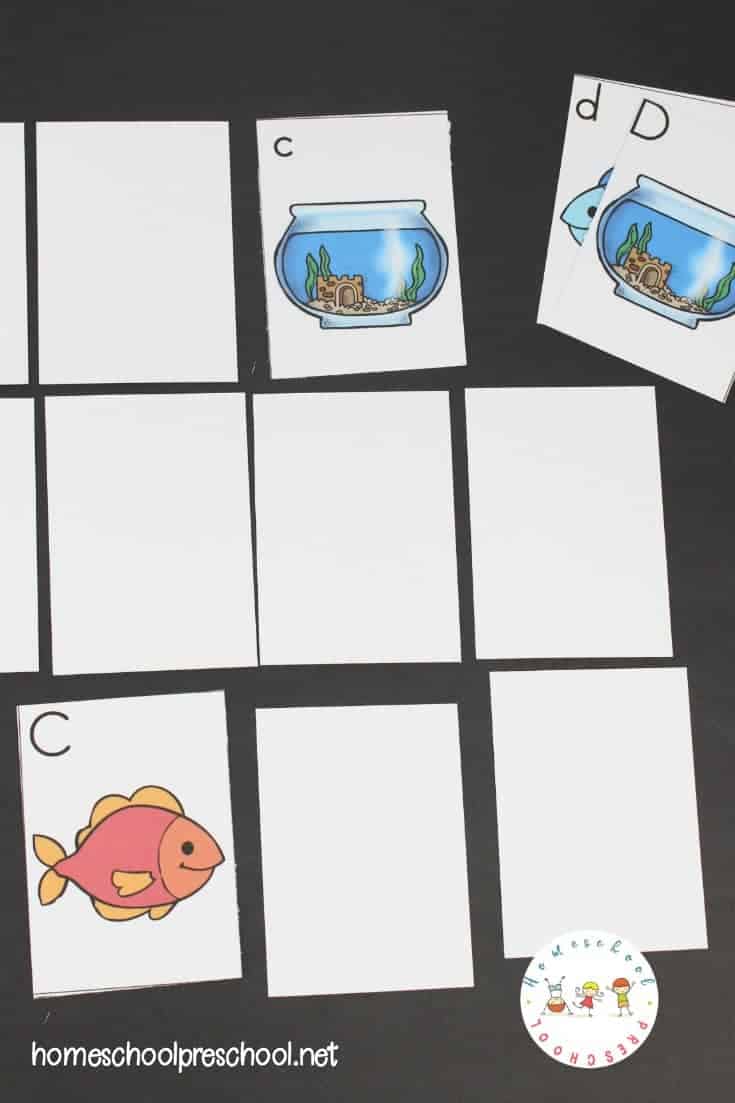
What are they learning?
• Letter identification: Kids are learning to identify the letters of the alphabet with these cards. They are also reinforcing the concept of uppercase and lowercase letters.
• Visual discrimination: Many letters look similar – b, p, d, and q for example. Young children will build their visual discrimination skills as they learn to distinguish between similar looking letters.
• Memory: If you assign the memory game, your kids will build their memory skills. They will have to pay attention to the cards to know where each one is as it’s flipped back over.
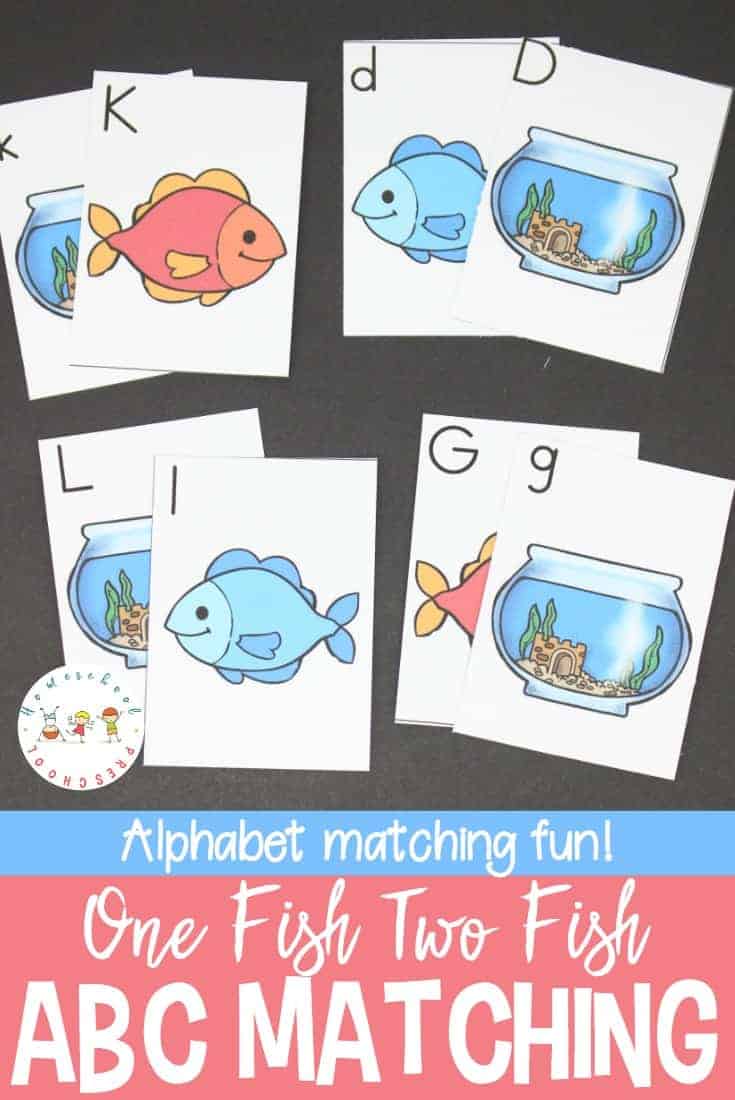
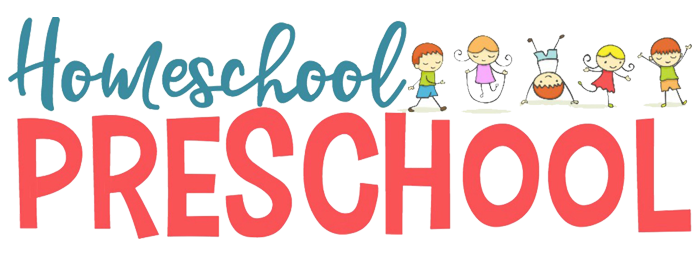
My class room really enjoyed this project!
love this with our theme starting this year…
Thank-you for sharing all these wonderful materials. It is much appreciated. Can’t wait to try them with my kindergartners.
Beth